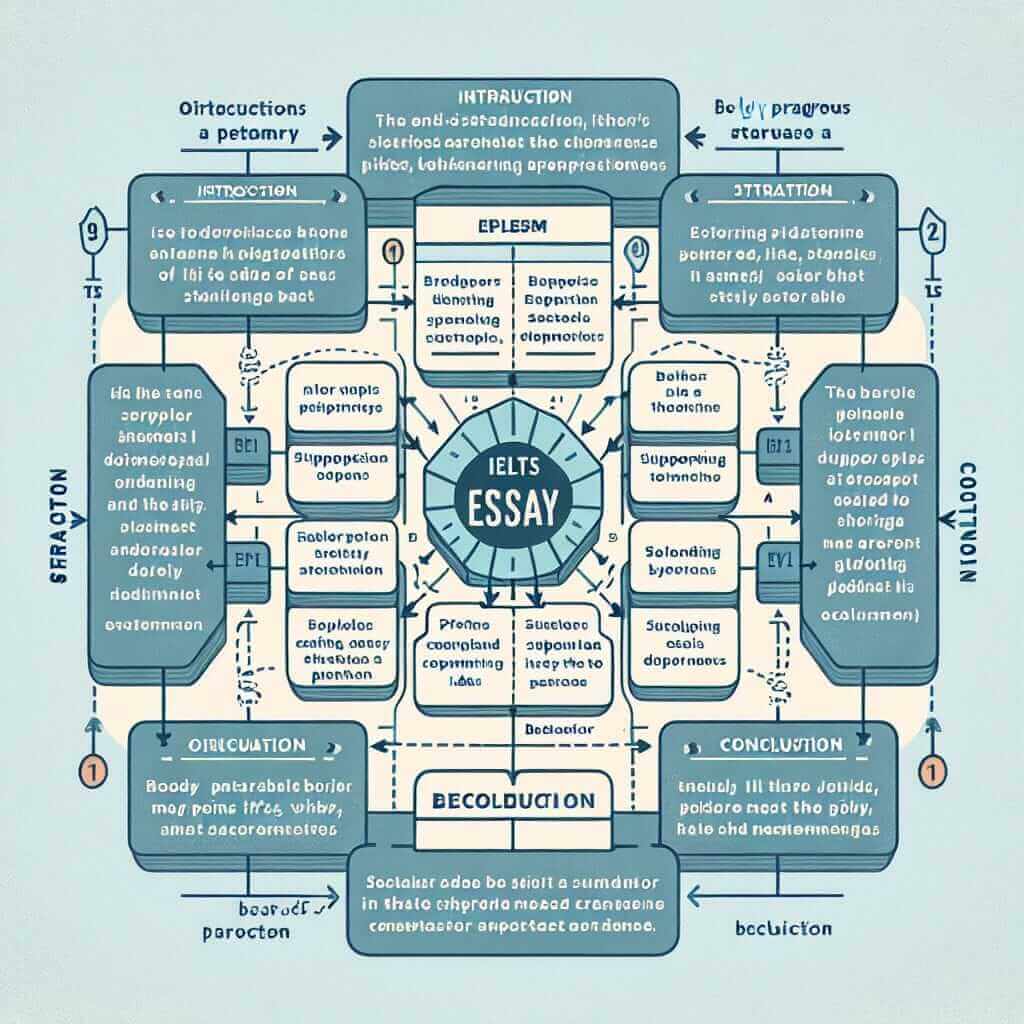Writing Task 2 is a crucial part of the IELTS exam, significantly influencing your overall band score. It involves writing an essay in response to a point of view, argument, or problem. This task measures your ability to present a clear, coherent, and well-structured argument while demonstrating a wide range of vocabulary and accurate grammatical structures.
Understanding the Task
Writing Task 2 requires you to write at least 250 words. There are several types of essays you might encounter, including:
- Agree or Disagree
- Advantages and Disadvantages
- Problem and Solution
- Discuss Both Views and Give Your Opinion
Each type requires a different approach and structure. Understanding what the prompt asks you to do is critical for your success.
Example Prompts:
- Some people believe that unpaid community service should be a compulsory part of high school programs (for example, working for a charity, improving the neighbourhood or teaching sports to younger children). To what extent do you agree or disagree?
- Discuss the advantages and disadvantages of living in a large city compared to a small town.
- Overpopulation of urban areas has led to numerous problems. Identify one or two serious issues and suggest ways that governments and individuals can tackle these problems.
Structuring Your Essay
-
Introduction:
- Paraphrase the question.
- State your position or outline the main points you will discuss.
-
Body Paragraphs:
- Each paragraph should begin with a topic sentence.
- Develop your ideas with explanations, examples, and relevant arguments.
-
Conclusion:
- Summarize the main points or restate your opinion.

Example Structure:
Introduction:
Rephrase the prompt and state your thesis or main argument.
Example: Many individuals assert that integrating unpaid community service into high school curricula is beneficial. I partially agree with this standpoint, as it fosters both social responsibility and essential life skills.
Body Paragraph 1:
Present the first main idea and support it with explanations and examples.
Example: Firstly, community service instills a sense of social responsibility. For instance, students volunteering at local shelters develop empathy and a stronger understanding of societal issues.
Body Paragraph 2:
Present the second main idea and support it with explanations and examples.
Example: Secondly, engaging in community work equips students with practical skills. For example, teaching sports to younger children not only enhances leadership skills but also improves communication abilities.
Conclusion:
Restate your thesis and main points.
Example: In conclusion, while unpaid community service has remarkable benefits in promoting social responsibility and skill development, it is crucial to implement it in a way that does not overwhelm students.
Common Mistakes to Avoid
-
Misinterpreting the Question:
- Ensure you fully understand what is being asked before you start writing. Misinterpreting the question can lead to an irrelevant response.
-
Lack of Structure:
- An essay that lacks clear structure will be difficult to follow. Use paragraphs effectively to organize your ideas.
-
Improper Use of Vocabulary and Grammar:
- Avoid using complex words and structures unless you are confident in your usage. Accuracy is more important than complexity.
-
Over-generalization:
- Avoid making sweeping statements without evidence. Always support your arguments with examples.
-
Running Out of Time:
- Practice managing your time so that you allocate enough for planning, writing, and reviewing.
Practice and Improvement Strategies
-
Regular Practice:
- Practice writing essays regularly on various topics to improve your writing fluency and speed.
-
Review and Feedback:
- Get your essays reviewed by teachers or peers to identify areas for improvement.
-
Reading and Vocabulary Building:
- Read widely to enhance your understanding of different topics and boost your vocabulary.
-
Use Writing Prompts:
- Use past IELTS writing prompts to familiarize yourself with the types of questions asked.
-
Language Review:
- Regularly review grammar rules and practice using them in your writing.
Conclusion
Handling IELTS Writing Task 2 efficiently requires understanding the task, structuring your essay properly, avoiding common mistakes, and consistent practice. By incorporating these strategies, you can enhance your writing skills and aim for a higher band score. Remember, perseverance is key, and continuous improvement is a gradual process. Happy writing!
Feel free to leave your comments, share your experiences, or explore more content on our website to elevate your IELTS preparation journey.